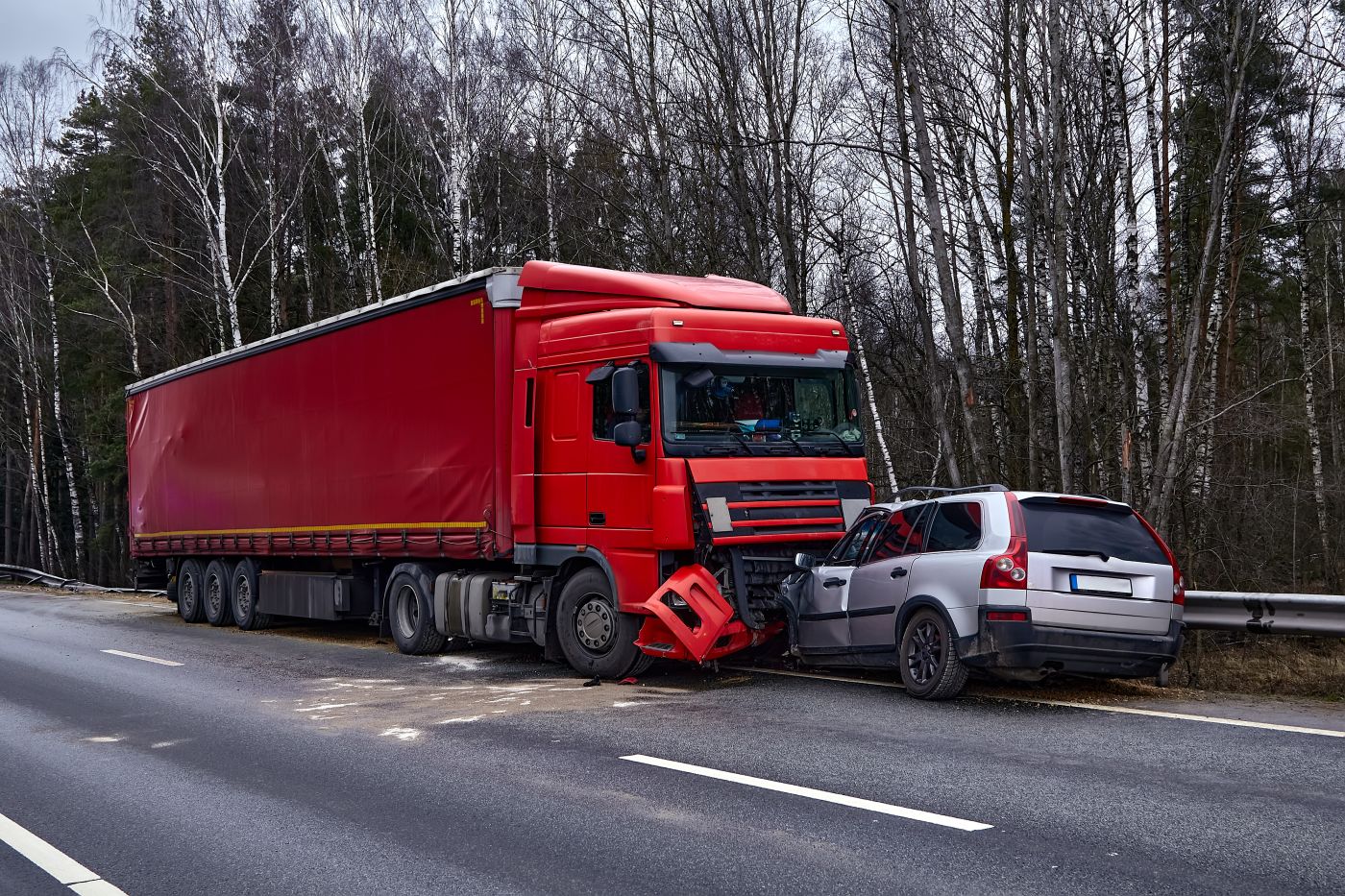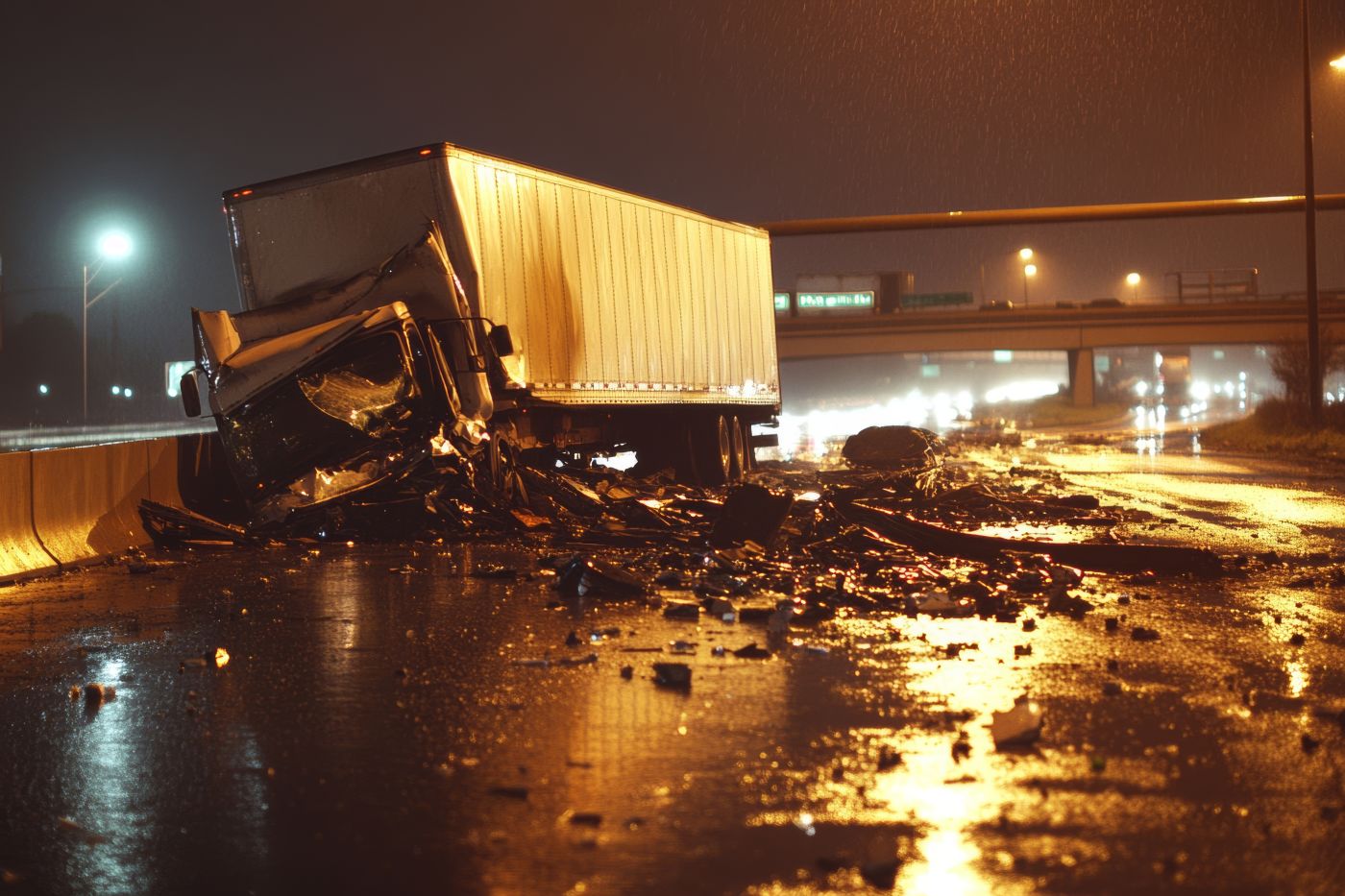
The highways and interstates that run through Kansas are vital arteries for interstate commerce. With major routes like I-70 and I-35 cutting through the state, Kansas sees a high volume of 18-wheeler traffic. While essential for the economy, these massive commercial vehicles pose significant risks.
When accidents involving these trucks occur, the resulting damage can be catastrophic. Determining liability in such cases is a complicated legal issue heavily influenced by federal trucking regulations.
Federal regulations, mainly established by the Federal Motor Carrier Safety Administration (FMCSA), create a structure that governs every aspect of commercial trucking in the United States. These rules cover everything from driver qualifications to vehicle maintenance and hours-of-service limitations.
The application of these federal standards often plays a role in determining liability, and understanding them is crucial. At Harris & Hart Attorneys at Law, located in Overland Park, Kansas, we provide knowledgeable support. Here, we’ll discuss how federal trucking regulations impact liability in such accidents, with a focus on Kansas laws and litigation practices.
Federal Trucking Regulations
The FMCSA is the federal agency responsible for regulating the trucking industry. It implements the Federal Motor Carrier Safety Regulations (FMCSRs), which are codified in Title 49 of the Code of Federal Regulations (CFR). These rules are designed to reduce crashes, injuries, and fatalities involving large trucks and buses.
Key areas of regulation include:
Hours of Service (HOS) rules
Vehicle maintenance and inspection
Drug and alcohol testing
Driver qualification requirements
Load securement and weight limits
Insurance and financial responsibility
When a trucking company or driver violates these regulations and an 18-wheeler accident ensues, those violations can significantly influence the assignment of legal fault.
Laws For Trucking Accidents in Kansas
Kansas is a modified comparative fault state under K.S.A. § 60-258a. This means that a plaintiff can recover damages as long as they’re less than 50% at fault for the accident. If the plaintiff is found to be 50% or more at fault, they’re barred from recovering any compensation.
In the context of a trucking accident, proving the negligence of the truck driver or trucking company is essential. Violations of FMCSRs can serve as evidence of negligence per se—that is, negligence as a matter of law. This can heavily influence liability determinations in court.
While Kansas courts follow state negligence law, they often rely on federal trucking regulations as the standard of care in determining liability. Federal rules don’t generally preempt state tort claims unless there is a direct conflict. Therefore, a Kansas plaintiff can assert state law claims such as negligent hiring or negligent maintenance, using federal regulations as a benchmark.
How Federal Regulations Shape Liability in Kansas Trucking Accidents
The extensive network of highways spanning Kansas plays a crucial role in facilitating interstate commerce, with major routes experiencing significant volumes of 18-wheeler traffic. While these large commercial vehicles are vital to the economy, their presence inherently carries substantial risks. When accidents involving these trucks occur, the resulting devastation can be immense
Hours of Service Violations
The FMCSA strictly limits the number of hours a truck driver can operate without rest. These rules aim to prevent fatigue-related crashes. Drivers must follow these limits:
Consecutive hours: Drive no more than 11 hours after 10 consecutive hours off duty
Driving cutoffs: Don’t drive beyond the 14th hour after coming on duty
Encorporate breaks: Take a 30-minute break after 8 hours of driving
Hour maximum: Don’t drive after 60/70 hours on duty in 7/8 consecutive days
If an 18-wheeler accident in Kansas involves a fatigued driver, and logbooks or electronic logging devices (ELDs) show HOS violations, liability can quickly shift to the trucking company. Kansas courts may consider these violations as evidence of negligence, particularly if fatigue was a proximate cause of the crash.
Driver Qualification and Training
Federal regulations under 49 CFR Part 391 require that drivers:
Be at least 21 years old
Speak and read English sufficiently
Pass a physical examination
Maintain a valid Commercial Driver’s License (CDL)
Be trained in the safe operation of the vehicle
In Kansas, if a driver involved in a crash lacked proper qualifications or training, and the employer failed to perform due diligence, the trucking company can be held liable for negligent hiring or retention. Plaintiffs often subpoena driver qualification files to identify potential red flags, such as failed drug tests, poor driving records, or inadequate training.
Vehicle Maintenance and Inspection
Under 49 CFR Part 396, commercial vehicles are required to undergo regular inspections, repairs, and maintenance. Drivers must perform daily pre-trip and post-trip inspections and record any defects.
A mechanical failure, like brake malfunction or tire blowout, that causes a crash can indicate a failure to maintain the vehicle. Kansas courts often rely on maintenance records and inspection reports to establish whether the carrier met the federal maintenance standards. If they didn’t, the court might find the carrier directly liable or vicariously liable for the driver’s actions.
Drug and Alcohol Testing Violations
The FMCSA mandates pre-employment, random, post-accident, and reasonable suspicion drug and alcohol testing for drivers. Under 49 CFR Part 382, employers must confirm drivers are free from substances that impair safe driving.
If a driver tests positive for drugs or alcohol after an accident, and the employer failed to enforce proper testing, this is often grounds for punitive damages. In Kansas, this type of negligence may lead to corporate liability for reckless supervision or failure to follow federal mandates.
Load Securement and Weight Regulations
Improperly loaded or overweight trucks are dangerous. Federal rules (e.g., 49 CFR Part 393) mandate how cargo should be secured and limit gross vehicle weight.
Overloading can cause brake failure, tire blowouts, and rollovers. In Kansas, if an 18-wheeler accident investigation shows load violations, liability may extend to third parties such as loading dock operators or cargo shippers. The trucking company may also face liability for failing to inspect the load before departure.
Electronic Logging Devices (ELDs) and Data Evidence
As of December 2017, most commercial drivers are required to use ELDs to record driving hours automatically. These devices are crucial in reconstructing accidents.
In Kansas courts, ELD data is admissible as evidence. It can prove or disprove HOS compliance, speed, brake usage, and location. If tampering is detected or data is missing, it may be inferred that the trucking company is hiding misconduct, potentially resulting in spoliation of evidence claims.
Federal trucking regulations serve as more than just advisory guidelines; they’re critical determinants in establishing liability in the event of 18-wheeler accidents. As the risks associated with commercial trucking persist, the intersection of federal regulatory compliance and state liability law will undoubtedly remain a vital area of legal scrutiny and development.
Kansas-Specific Considerations
Kansas recognizes both direct liability (for negligent hiring, training, and supervision) and vicarious liability under the doctrine of respondeat superior. However, courts may not allow both claims simultaneously unless there is an independent claim for punitive damages.
Under Kansas law, the statute of limitations for personal injury is two years from the date of the 18-wheeler accident (K.S.A. § 60-513). It’s critical to begin the investigation and preservation of federal compliance records immediately after an 18-wheeler accident.
Function of Expert Witnesses
In Kansas trucking cases, attorneys frequently employ experts in:
Accident reconstruction
FMCSA compliance
Vehicle engineering and maintenance
Human factors (e.g., fatigue analysis)
These experts help bridge the gap between federal regulations and the jury’s understanding, particularly in intricate cases involving multiple parties or technical violations.
Federal trucking regulations are more than mere guidelines—they’re powerful tools for establishing liability in 18-wheeler accidents. In Kansas, courts rely heavily on these regulations to assess whether trucking companies and drivers acted with reasonable care.
Given Kansas’s comparative fault system, proving federal regulatory violations can be the deciding factor in recovering damages. Attorneys, insurers, and accident victims must understand the nuances of these federal rules and how they integrate into Kansas tort law.
Contact Experienced Legal Counsel
As trucking accidents continue to pose serious safety risks, the intersection of federal regulation and state liability law remains a critical area for legal scrutiny and reform. At Harris & Hart Attorneys at Law, we serve clients in Kansas and Missouri and are prepared to represent you in your case. If you need a firm to assist you after an 18-wheeler accident, contact us today.



